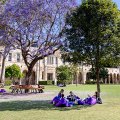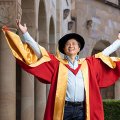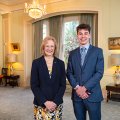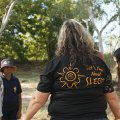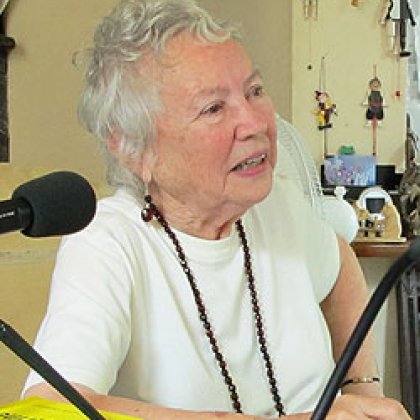
When activist and former University of Queensland academic Merle Thornton chained herself to the bar at the Regatta Hotel in the mid-60s, it was a landmark moment for women’s rights in Australia.
Four decades later, a UQ researcher is working to ensure the achievements of the era aren’t forgotten.
Dr Margaret Henderson from the School of English, Media Studies and Art History recently interviewed Ms Thornton as part of an oral history project for the National Library of Australia.
“Merle was ahead of her time in her fight for women’s rights,” Dr Henderson said.
“She formed the Equal Opportunities Association for Women, which campaigned for a number of reforms across a wealth of areas that women may take for granted today such as being able to keep your job in the public service if you get married, access to quality childcare and paid maternity leave.”
Dr Henderson and Associate Professor Maryanne Dever from the University of Newcastle started the project after identifying significant gaps in the formal records of women’s grass-roots activism.
The interview will be presented to the National Library as part of the Archiving Australian Feminism: The Personal Papers of Merle Thornton project. Supported by the Sidney Myer Foundation and the Queensland Government, a range of Ms Thornton’s documents and records will also be deposited including letters, manuscripts and petitions for action.
These documents include the hate mail Ms Thornton and fellow activist Rosalie Bogner received after staging the Regatta protest.
“We forget just how much of a challenge these protests posed to the gender order of the day which dictated that ‘nice’ women stayed home with their children,” Dr Dever said.
Ms Thornton became a household name after the incident, but her later achievements as an academic and author were incredibly diverse. These included helping to set up women’s studies as a discipline at UQ in 1973, studying political philosophy and publishing a series of academic essays.
She also found success writing episodes of the popular Prisoner television series, making educational videos, and went on to publish her first novel After Moonlight in 2004.
“The interview provides insights into Merle’s accomplishments and insights, but it also acts as a powerful record of the unique role played by Brisbane in the early stages of the modern women’s movement,” Dr Dever said.
Media: Dr Henderson (07 3365 2338, m.henderson@uq.edu.au), Dr Dever (0412 350 821) or Cameron Pegg at UQ Communications (07 3365 2049, c.pegg@uq.edu.au)

.jpg?itok=A3VEKM1Y)
